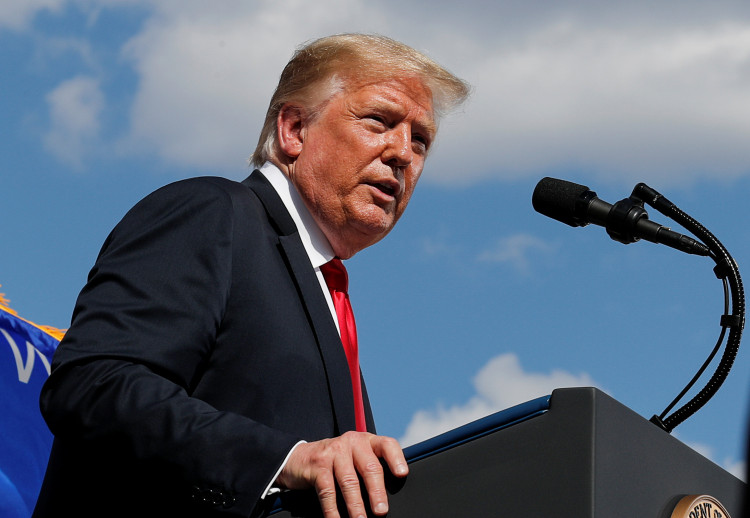President-elect Donald Trump confirmed on Monday his intention to declare a national emergency and deploy military resources to carry out mass deportations of undocumented immigrants in the United States, a move that has already sparked intense debate and drawn widespread scrutiny. Trump made the declaration in response to a social media post from Judicial Watch's Tom Fitton, who earlier this month suggested that Trump's incoming administration was preparing to use "military assets" to enforce a mass deportation program. Trump's response was a simple, yet emphatic, "TRUE!!"
Throughout his campaign, Trump consistently underscored his plan to launch "the largest deportation program in American history." During a rally at Madison Square Garden, he declared, "On Day 1, I will launch the largest deportation program in American history to get the criminals out... We will put these vicious and bloodthirsty criminals in jail, then kick them the hell out of our country as fast as possible."
Trump's administration is already assembling a leadership team reflective of his immigration stance. South Dakota Governor Kristi Noem has been tapped to serve as Secretary of Homeland Security, pending Senate confirmation, and former acting director of Immigration and Customs Enforcement (ICE) Tom Homan has been appointed "border czar." Homan, a long-time proponent of strict immigration enforcement, stated that initial efforts would focus on removing individuals with criminal records or posing national security threats, though he did not rule out broader deportations that could include families.
Trump's plans include mobilizing the National Guard to aid in the mass deportation effort and has, at times, suggested redirecting U.S. troops stationed abroad to secure the nation's southern border. Such proposals have raised questions from legal experts, as U.S. law imposes restrictions on the use of military forces for domestic policing. The Brennan Center for Justice has highlighted that any military involvement in law enforcement matters would mark a significant shift in traditional roles and could provoke legal challenges.
The scale of Trump's proposed deportations is daunting. The American Immigration Council estimates there are approximately 11 million unauthorized immigrants in the U.S., and removing them could come at a high financial cost, estimated in billions of dollars annually. The broader economic impact could also be severe, potentially leading to labor shortages and lost tax revenues. Manuel Cunha Jr., president of the Nisei Farmers League, expressed deep concern about how mass deportations could devastate the agricultural sector. "If you took away my workforce, you wouldn't eat... The country will stop, literally stop because the food system won't move," Cunha told ABC News.
Trump's intention to declare a national emergency echoes previous actions during his first term. Then, he used the National Emergencies Act to redirect military funds toward building sections of the U.S.-Mexico border wall. While that effort faced multiple legal challenges, some of which were resolved after Trump left office, his hardline approach to immigration remains a defining aspect of his agenda.
Advocacy groups and legal experts are already preparing to counter Trump's proposed mass deportation initiative through the courts. Crafting executive orders capable of withstanding legal scrutiny will be a top priority for the incoming administration, a lesson learned from past legal setbacks, such as the controversial 2017 travel ban targeting predominantly Muslim countries.
The timing of Trump's confirmation comes amid a recent decline in migrant encounters at the U.S.-Mexico border. U.S. Border Patrol statistics show a steep drop from over 200,000 encounters per month late last year to below 60,000 during recent months. Nevertheless, Trump's plans have reignited fierce debates over immigration policy, with supporters and critics sharply divided over its implications.
Karoline Leavitt, spokesperson for the Trump-Vance transition, characterized the president-elect's approach as a fulfillment of voters' wishes. "Voters re-elected Trump by a resounding margin, giving him a mandate to implement the promises he made on the campaign trail, like deporting migrant criminals," Leavitt stated.






